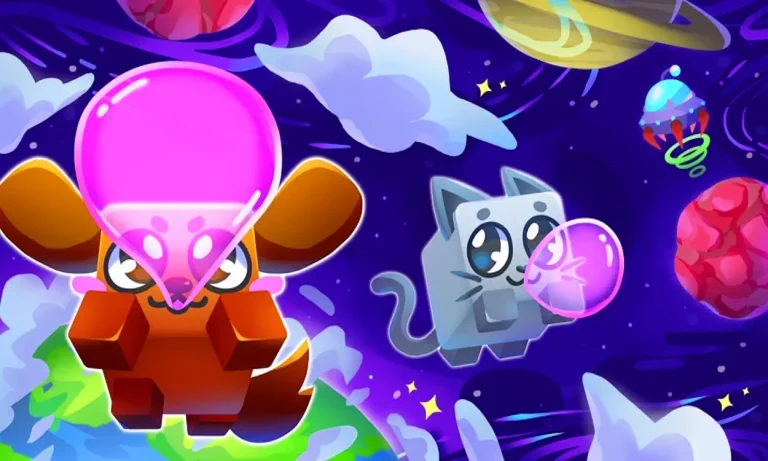Tripi Tropi Tropa Tripa | A Rhythmic Ode to the Belly
Overview
Language always changes and grows. It moves to music, tickles our ears and makes us giggle at times. Not many expressions express this magical mood so well as “tripi tropi tropa tripa.” With a Spanish basis and lighthearted style, this catchy song reveals more than its tune; it includes unique personality, cultural background and creativity.
What Does “Tripi Tropi Tropa Tripa” Mean?
Essentially, this expression is a playful rhyme, based on the word “tripa” in Spanish which stands for belly. It’s mostly used to refer to a wide, round or heavy belly that shakes when you move or laugh.
This catchy phrase isn’t part of formal grammar or traditional Spanish idioms. Rather, it’s a made-up, joyful string of sounds that might be shouted, sung, or teased especially when pointing to someone’s belly in jest.
Breakdown of the Phrase
- Tripi: Sounds playful, not a real word, but sets the tone.
- Tropi: Keeps the rhythm going, possibly evokes “tropical” fun.
- Tropa: Could mean “troop” in Spanish, but here adds bounce.
- Tripa: The punchline of the belly.
Together, the phrase reads like a song: Tripi! Tropi! Tropa! Tripa! It’s got bounce, it’s musical, and it ends with a punch to the belly!
Cultural Humor and Wordplay in Spanish
Spanish, like many languages, has a rich tradition of wordplay, rhymes, and humorous phrases. From nursery rhymes to street slang, there’s a love for rhythm and improvisation in daily speech. “Tripi tropi tropa tripa” fits right into this tradition.

Why Is It Funny?
- Rhythmic and Musical: The phrase rolls off the tongue like a chant or song.
- Unexpected Ending: It ends with “tripa” (belly), making it unexpectedly relatable or self-deprecating.
- Visual Humor: It’s easy to imagine someone patting their belly while chanting it.
You can often find this kind of humor in Latin American and Spanish culture, since people there are comfortable using light teasing and playful monikers among loved ones. People make the “tripi tropi tropa tripa” joke because they actually care for someone, not to hurt them.
Where Might You Hear This Phrase?
While it’s not part of any official dictionary of the linguistic body, “tripi tropi tropa tripa” is the kind of phrase that could spread virally in certain circles or online. It’s highly adaptable and could appear in:
1. Family Gatherings
Imagine an uncle walking into a room, slapping his belly, and shouting “¡Tripi tropi tropa tripa!” Laughter erupts. Everyone understands the joke, it’s a nod to that comfortable, carefree vibe.
2. Social Media Memes
It has the rhythm and silliness perfect for a meme. A photo of a person with a round belly, dancing or smiling, with “Tripi Tropi Tropa Tripa” captioned underneath? Instant viral material.
3. Children’s Games or Songs
This phrase could easily be turned into a children’s chant or rhyme, teaching kids rhythm, rhyme, and self-confidence in a fun way.
4. Comedy Sketches or Parodies
Comedians love this type of language — something lighthearted with an instant punchline. In a sketch, “tripi tropi tropa tripa” could be used to exaggerate body movements or character personality.
The Power of Rhythmic Language
Why do phrases like this stick? Because rhythm triggers memory. Just like how we remember song lyrics or jingles more easily than dry information, phrases like “tripi tropi tropa tripa” lodge themselves in our minds with their rhythm and musicality.
They also:
- Encourage creative thinking.
- Break linguistic norms in a fun way.
- Make people smile and relate instantly.
Rhythmic wordplay is common in many languages:
- In English: “Chitty chitty bang bang” or “Humpty Dumpty sat on a wall.”
- In French: “Tic tac toe, la guerre au dos.”
- In Spanish: “Una rana que no sabía nadar…”
“Tripi tropi tropa tripa” joins that proud tradition spontaneous, silly, and sensational.
Body Positivity and Embracing the “Tripa”
Interestingly, while the phrase is humorous, it can also be a gateway to self-acceptance and body positivity. In many cultures, body image is a sensitive topic. But by laughing with rather than at ourselves, we open space for confidence.
Reclaiming the Belly
In many Latinx communities, terms like “gordito/gordita” or “panza” can be used affectionately. “Tripi tropi tropa tripa” feels like an extension of that, a proud, silly celebration of the belly that jiggles when you laugh.
It says:
“Yes, I have a belly. It dances. It sings. It is mine.”

Can It Become a Trend or Brand?
Absolutely! The phrase’s originality and charm make it an ideal candidate for:
- A children’s book title
- A social media trend or hashtag
- A clothing line focused on body positivity
- A short animation or TikTok challenge
Marketing Potential
Think of catchy slogans:
- “Be proud of your tripa, tripi tropi tropa tripa style!”
- “Move that belly! #TripiTropiTropaTripa”
- “Dance like your tripa is leading the way!”
Creative Uses of the Phrase
Let’s explore how you might use it in everyday contexts:
1. A Compliment in Disguise
“Look at that tripi tropi tropa tripa! It’s a masterpiece!”
2. To Break the Ice
You’re at a party. It’s quiet. You chant “Tripi tropi tropa tripa!” Everyone looks at you then laughs. Ice = broken.
3. To Describe a Mood
“Estoy en modo tripi tropi tropa tripa” = I’m in lazy, snacky, belly-out, relaxed mode.
4. In Art or Writing
Use it as a character name, a song lyric, or a metaphor:
“Her laugh was a tripi tropi tropa tripa, round, loud, and impossible to ignore.”
Conclusion
It’s silly. It’s musical. It’s joyful. “Tripi tropi tropa tripa” is more than just a funny rhyme, it’s a celebration of language, humor, and humanity. In a world full of seriousness, it gives us permission to laugh, jiggle, and rhyme our way to happiness.






